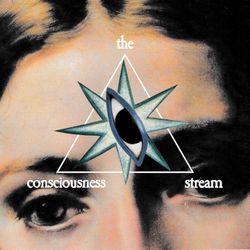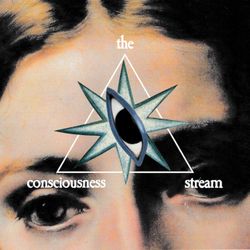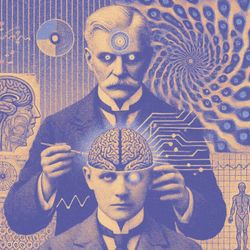Share
![cover art for anatomy of evil: h.h. holmes (how victorian vice shaped the mask of a gentleman killer) [premium exclusive]](https://open-images.acast.com/shows/60e8deaefb090f0013116d69/1735679446378-b2e8272f-396f-4979-a13e-2172ecffa88e.jpeg?height=750)
Back From The Borderline
anatomy of evil: h.h. holmes (how victorian vice shaped the mask of a gentleman killer) [premium exclusive]
In this episode of "Anatomy of Evil," I peel back the velvet curtain of the Victorian era to reveal the disturbing world of H.H. Holmes, America’s first documented serial killer. His story isn't just a tale of murder and deception—it's a harrowing journey into the complexities of the human psyche.
As we traverse the cobblestone streets of 19th century Chicago, I delve into Holmes's early life, exploring how a combination of societal pressures, inherent cunning, and emotional detachment molded a charming young boy into a master manipulator. From his upbringing during the paradoxical Victorian era—a time obsessed with both scientific progress and the macabre—to the pivotal moments that sparked his descent into infamy, we uncover the layers of influence that shaped his dual life.
The heart of our exploration beats within the walls of the infamous "Murder Castle," a labyrinthine structure of Holmes's own design. Here, his darkest impulses were unleashed, turning adaptive survival strategies into lethal traps for his unsuspecting victims. As we dissect Holmes's methods and the chilling ease with which he lured his prey, a critical question emerges: How did society’s fascination with the grotesque and the unknown feed into Holmes’s narrative, and what does this macabre curiosity reveal about our own?
This episode is more than a historical recount; it's a deep dive into the psyche of a man who was a product of his time yet disturbingly ahead of it. By understanding Holmes's life and crimes, we confront uncomfortable truths about the potential for evil within all societal frameworks.
Join me as we journey through the dark corridors of history, examining how the shadows of the Victorian era mirror today's societal challenges. It's an exploration that promises not only to captivate but also to enlighten, urging us to remain vigilant against the darkness that can so easily grow in the unwatched corners of society.
TIME STAMPS:
05:23.84 – 42:57.70: PART 1 (Explore H.H. Holmes's Victorian upbringing, his charismatic yet manipulative nature from an early age, and the development of his sinister survival strategies amidst a backdrop of rigid societal norms and emerging sciences.)
42:57.70 – 01:21:08.88: PART 2 (Delve into Holmes's infamous crimes from the construction of the Murder Castle to his psychological profile as a serial killer, and examine the media's role in sensationalizing his actions, reflecting on Victorian society and its influence on modern true crime fascination.)
More episodes
View all episodes

how the energy you carry is secretly controlling your life
01:23:59|You think you’re moving through life as yourself, but something is running beneath the surface. A frequency, a pattern, a program that shapes everything around you. It’s invisible to the naked eye - and even your conscious awareness - but it’s there, shaping your world, your relationships, your opportunities.But you’ve been blind to it. You’ve been living inside it, mistaking it for reality itself. Until now.In this episode, I’m not here to comfort you. I’m here to wake you up. To reveal the energetic archetypes that have been shaping how the world meets you without your knowledge. These archetypes - the Armored One, the Eternal Girl, the Unseen One - they aren’t who you are, but they’ve become how you move, how you interact, how you exist in the world.These patterns don’t define you. They never did. And the moment you see them for what they are, you can start to step outside of them. No more surviving on autopilot. It’s time to reclaim your sovereignty. Because the moment you see the program, you’re no longer just a character in it. You’re the one writing the story.Something is already shifting as you read this. The real work begins now. Press play. Unlock my FULL ARCHIVE of members-only content + Patreon exclusives:PATHWORK → Weekly self-inquiry prompts to turn insight into transformation.THE CONSCIOUSNESS STREAM → Raw, unfiltered deep dives.THE DEEP CUT → Structured breakdowns of esoteric + psychological themes.BONUS EPISODES + RESOURCES → Hundreds of hours of hidden gems.Start exploring right now for FREE and see everything waiting for you at backfromtheborderline.com.
you say you've changed — so why does your life look the same?
19:38|You tell yourself you’ve grown. That you’ve done the work. That you’ve broken the cycle. So why does everything still feel the same? Why do the same frustrations, the same dynamics, the same patterns keep showing up, wearing different faces but delivering the same lesson you swear you already learned?In this episode, we’re cracking open the 'as if reality': the hidden belief shaping your life without your consent. The unconscious pattern that’s been scripting your choices, your relationships, your limitations. Not because you consciously believe it, but because it’s been running the show from below. We’ll unravel the illusions of control, the survival pacts you never realized you made, and the archetypal roles you’ve been unconsciously playing — The Wounded King, The Solitary Sovereign, the version of you that mistakes isolation for protection. And then, we’ll step into something new. The moment of rupture. The shift that happens not when you fight the pattern, but when you finally see it.So here’s the real question: If you woke up tomorrow and the belief was gone — if you were no longer living as if something false were true — what would be different?Sit with that. Press play. And let it land.🔓 UNLOCK THE FULL EPISODE + BONUS CONTENT: Want to keep listening? Get full access to this episode, ad-free listening, and my entire archive — plus exclusive Patreon-exclusive podcasts like The Consciousness Stream and The Deep Cut and access to Pathwork, my digital mystery school. Pro Tip: iPhone users should sign up through a browser (Safari or Chrome) to avoid Apple’s extra fees.🔗 CLICK HERE TO LISTEN TO THE FULL EPISODEMy full archive is available at patreon.com/backfromtheborderline
the truth about healing: you’ll never be who you were
52:58|They taught you to fear your scars. To see them as proof of failure. To believe that if you could just erase the marks, you could go back. Back to before, back to whole, back to some untouched version of yourself. But purity is a myth. A story designed to keep you chasing something that never existed.This episode dismantles the obsession with being unmarked, untouched, unscarred. It traces how purity culture seeps into our relationships, our bodies, our self-worth - how we are sold the idea that healing means erasing the very things that shaped us. But you were never meant to stay the same. Your scars are not the weight you carry. They are proof that you are still here.Unlock my FULL ARCHIVE of members-only content + Patreon exclusives:PATHWORK → Weekly self-inquiry prompts to turn insight into transformation.THE CONSCIOUSNESS STREAM → Raw, unfiltered deep dives.THE DEEP CUT → Structured breakdowns of esoteric + psychological themes.BONUS EPISODES + RESOURCES → Hundreds of hours of hidden gems.Start exploring right now for FREE and see everything waiting for you at backfromtheborderline.com.
the truth about healing: you’ll never be who you were [ad-free]
47:42|They taught you to fear your scars. To see them as proof of failure. To believe that if you could just erase the marks, you could go back. Back to before, back to whole, back to some untouched version of yourself. But purity is a myth. A story designed to keep you chasing something that never existed.This episode dismantles the obsession with being unmarked, untouched, unscarred. It traces how purity culture seeps into our relationships, our bodies, our self-worth - how we are sold the idea that healing means erasing the very things that shaped us. But you were never meant to stay the same. Your scars are not the weight you carry. They are proof that you are still here.
what you lose when you share too much
19:37|You’ve been taught that vulnerability is the path to intimacy. That the more you reveal, the closer you become. But does sharing everything really bring you closer? Or does it just leave you more exposed, more drained, more empty?In this episode, we’re pulling apart the myth of oversharing and exposing the unconscious drive behind it. The need to be seen, to be validated, to offload your pain onto someone else in the hope that they will carry it for you.We’ll dive into the Wounded Oracle, the part of you that mistakes your pain for your identity, that believes being vulnerable is the only way to prove you’re real. We’ll explore the Shadow’s Bargain — how oversharing becomes a transaction, where you exchange your secrets for the illusion of connection. And we’ll unpack the hidden cost of being so open, so raw, too soon. The way it creates unspoken power imbalances, how it can distance us instead of drawing us closer, and how sometimes the most vulnerable parts of us are meant to be kept sacred.So, what happens when we start sharing consciously? Not because we need someone to heal us, but because we trust ourselves enough to know what belongs to others and what doesn’t? Press play, and let the truth sink in.🔓 UNLOCK THE FULL EPISODE + BONUS CONTENT: Want to keep listening? Get full access to this episode, ad-free listening, and my entire archive — plus exclusive Patreon-exclusive podcasts like The Consciousness Stream and The Deep Cut and access to Pathwork, my digital mystery school. Pro Tip: iPhone users should sign up through a browser (Safari or Chrome) to avoid Apple’s extra fees.🔗 CLICK HERE TO LISTEN TO THE FULL EPISODEMy full archive is available at patreon.com/backfromtheborderline
Why Limerence Feels Like Love, But Isn’t [Ad-Free]
01:16:43|Ever found yourself trapped in a cycle of longing, obsession, and emotional chaos? A constant craving for validation, attention, or affection from someone who never quite gives you what you need? If this feels familiar, you’re not alone. What if this “love” you’re chasing isn’t love at all? What if it’s just a distraction, a survival mechanism to keep you from facing the real emotional work?In this episode, we’re shattering the myth of limerence. The obsessive longing that feels like love but is really just a projection of unmet needs. We’ll dive into why limerence isn’t about the other person — it’s about what’s missing inside of you. It’s about the unresolved emotional wounds you’ve been running from, wrapped up in a fantasy of someone else being the solution.Limerence is rooted in dependency. A desperate need to feel validated, to feel whole, by someone outside of yourself. But here’s the truth: no one can give you what you’re not willing to give yourself. The real work starts when you stop blaming them for not meeting your needs and start meeting them yourself. This episode is a deep dive into the self-healing process, where we’ll unravel how limerence keeps you stuck in emotional dependency and teach you how to break free.What if the obsession isn’t about them? What if it’s about you? What if you could finally stop chasing and start reclaiming your emotional independence? Press play, and let’s begin the transformation together.
why limerence FEELS like love, but isn't
01:22:33|Ever found yourself trapped in a cycle of longing, obsession, and emotional chaos? A constant craving for validation, attention, or affection from someone who never quite gives you what you need? If this feels familiar, you’re not alone. What if this “love” you’re chasing isn’t love at all? What if it’s just a distraction, a survival mechanism to keep you from facing the real emotional work?In this episode, we’re shattering the myth of limerence. The obsessive longing that feels like love but is really just a projection of unmet needs. We’ll dive into why limerence isn’t about the other person — it’s about what’s missing inside of you. It’s about the unresolved emotional wounds you’ve been running from, wrapped up in a fantasy of someone else being the solution.Limerence is rooted in dependency. A desperate need to feel validated, to feel whole, by someone outside of yourself. But here’s the truth: no one can give you what you’re not willing to give yourself. The real work starts when you stop blaming them for not meeting your needs and start meeting them yourself. This episode is a deep dive into the self-healing process, where we’ll unravel how limerence keeps you stuck in emotional dependency and teach you how to break free.\What if the obsession isn’t about them? What if it’s about you? What if you could finally stop chasing and start reclaiming your emotional independence? Press play, and let’s begin the transformation together. Unlock my FULL ARCHIVE of members-only content + Patreon exclusives:GO DEEPER WITH HUNDREDS OF BONUS EPISODES + WEEKLY PATHWORK PROMPTS. PATHWORK → Weekly self-inquiry prompts to turn insight into transformation.THE CONSCIOUSNESS STREAM → Raw, unfiltered deep dives.THE DEEP CUT → Structured breakdowns of esoteric + psychological themes.BONUS EPISODES + RESOURCES → Hundreds of hours of hidden gems.Start exploring right now for FREE and see everything waiting for you at backfromtheborderline.com.
will AI set you free or control your mind? (psychiatry, mental health, and the machine age)
02:14:36|AI isn’t coming for your job. It’s coming for your mind.Psychiatry and artificial intelligence are merging faster than anyone is paying attention to. Not to help people, not to bring depth or insight into the human experience, but to categorize, control, and optimize. Mental health isn’t being reimagined. It’s being automated.What happens when AI decides your diagnosis before you ever step into a doctor’s office? When machine learning models scan your text messages, search history, and medical records and quietly assign you a psychiatric risk score that determines what access you have to therapy, medication, or even basic life opportunities? This is where we’re headed. The algorithms are being trained right now, absorbing decades of psychiatric frameworks that were never built for healing. Only classification.But this episode isn't just about exposing the dystopian path we’re on. It’s about choosing another one. There is a way AI could be used to help people wake up instead of shutting them down. It could be built as a tool for individuation, for shadow work, for shining a light into the blind spots of the unconscious. It could be the initiation modern psychiatry has denied people for decades.The inflection point is here. Do we let AI become the ultimate psychiatric gatekeeper? Or do we reclaim it before the machine starts rewriting our stories for us? Press play.GO DEEPER WITH HUNDREDS OF BONUS EPISODES + WEEKLY PATHWORK PROMPTS. Unlock my FULL ARCHIVE of members-only content + Patreon exclusives:PATHWORK → Weekly self-inquiry prompts to turn insight into transformation.THE CONSCIOUSNESS STREAM → Raw, unfiltered deep dives.THE DEEP CUT → Structured breakdowns of esoteric + psychological themes.BONUS EPISODES + RESOURCES → Hundreds of hours of hidden gems.Start exploring right now for FREE and see everything waiting for you at backfromtheborderline.com.
will AI set you free or control your mind? (psychiatry, mental health, and the machine age) [ad-free]
02:07:49|AI isn’t coming for your job—it’s coming for your mind.Psychiatry and artificial intelligence are merging faster than anyone is paying attention to. Not to help people, not to bring depth or insight into the human experience, but to categorize, control, and optimize. Mental health isn’t being reimagined—it’s being automated.What happens when AI decides your diagnosis before you ever step into a doctor’s office? When machine learning models scan your text messages, search history, and medical records and quietly assign you a psychiatric risk score that determines what access you have to therapy, medication, or even basic life opportunities?This is where we’re headed. The algorithms are being trained right now, absorbing decades of psychiatric frameworks that were never built for healing—just classification.But this isn’t just about exposing the dystopian path we’re on. It’s about choosing another one.There is a way AI could be used to help people wake up instead of shutting them down. It could be built as a tool for individuation, for shadow work, for shining a light into the blind spots of the unconscious. It could be the initiation modern psychiatry has denied people for decades.The inflection point is here. Do we let AI become the ultimate psychiatric gatekeeper? Or do we reclaim it—before the machine starts rewriting our stories for us?Press play.